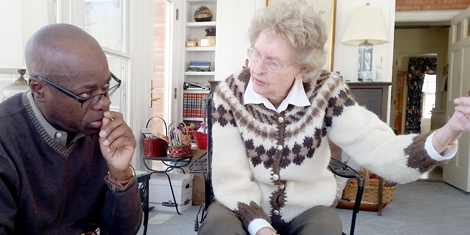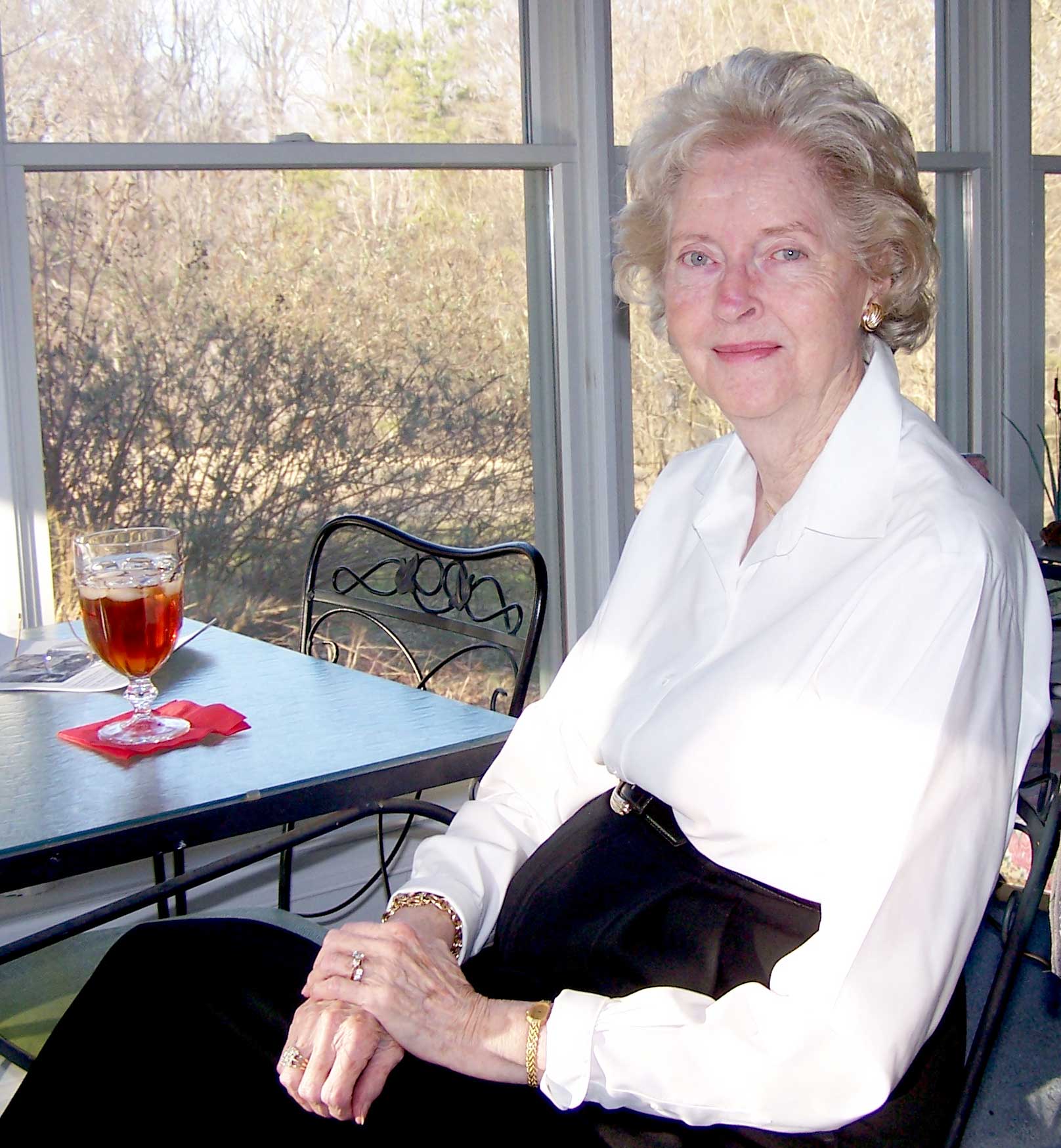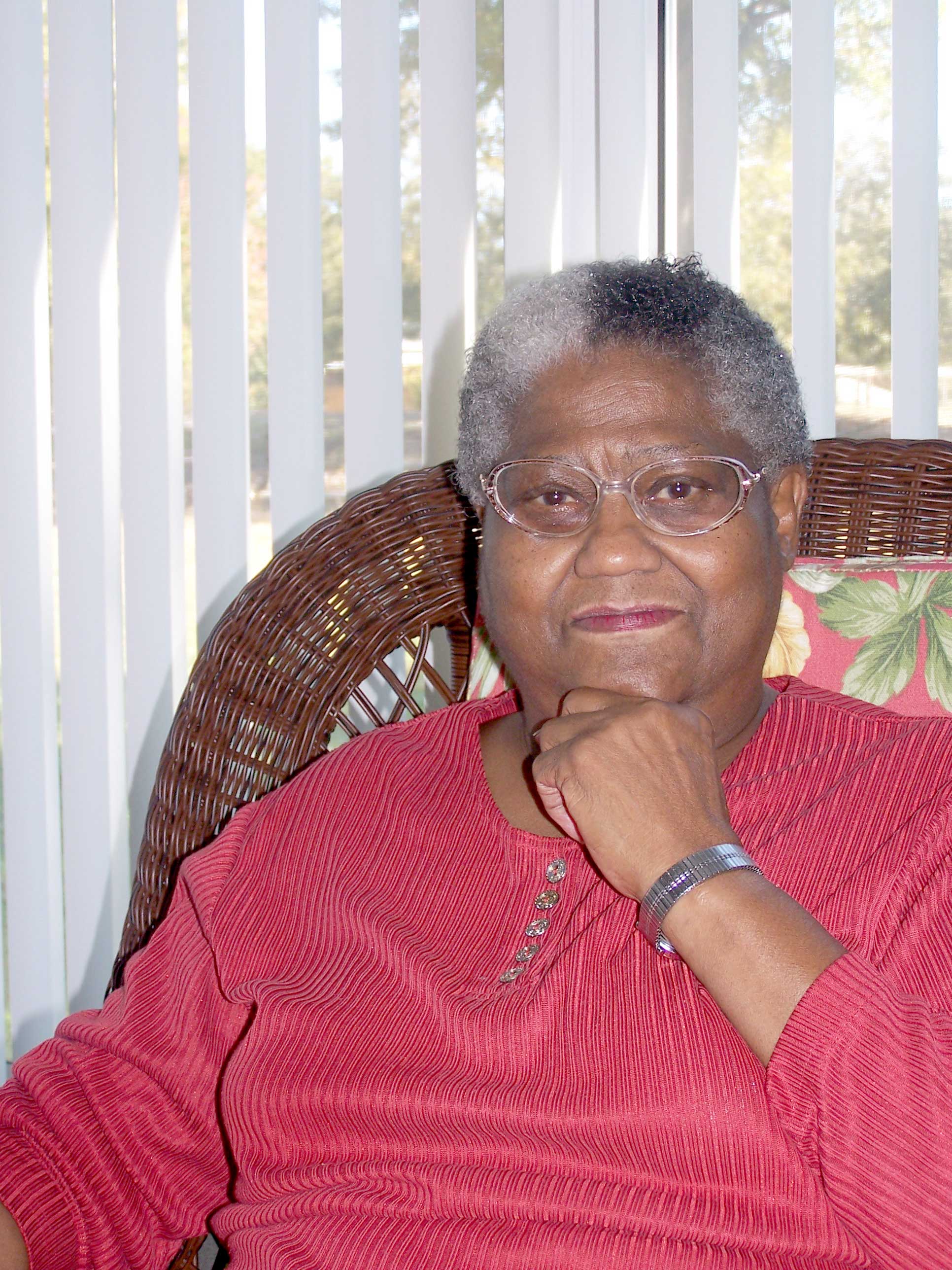By Dave Yochum. The 1920s and 30s produced a generation of people toughened by the Great Depression and World War II, but brimming with a sense of empowerment. They changed the world and they changed Cornelius. Here’s a look at three national treasures who live right here in Cornelius.
The Rev. Didi Wayland

WAYLAND
Didi Wayland was a 19-year old medic in a rifle platoon when his landing craft stopped short of the Utah beachhead, dropped the front end out and he jumped off. “The water came up to here,” he says, pointing to his chest. “You can’t run very well when the water is up to here.” A smile and a pause. The platoon charged and the Germans counter-charged. “We had to back up and we charged again.”
A wounded soldier was blown out of his arms by German gunfire, died instantly and Didi picked up another wounded GI and took him to a Jeep. Did the wounded GI survive? “I don’t know.” But Wayland did. He would be stuck on that beach that night. Bullets. More bullets. Bombs. “A terrible experience,” Wayland recalls.
The young soldier, who would become the beloved pastor of both Bethel Presbyterian Church and Cornelius Presbyterian Church—serving both at the same time—scraped a place out in the ground to get under the small arms fire, near an apple tree. “I laid down, scared to death, and then exhaustion, so totally exhausted, I woke up in the rain.”
Plane after plane flew in overhead dropping their bombs on the Germans. In the confusion that is war, some fell short. Didi thinks 500 GIs were killed.
Did you hate the Germans? “No,” he says. Didi, whose real name is John, went on to seminary, and then took a call in Cornelius over his late wife’s objections. The manse was about the worst in the Piedmont.
Cornelius right after the war was still a place of haves and have-nots. Of course, the returning GIs helped transform America, but Cornelius was a tiny farm village that had become a mill town centered on a handful of textile mills.
“A lot of people worked three days a week, minimum wage in the IX Co. mill,” Didi says. “Most of the people in Cornelius were the have-nots,” he says.
Life improved over the years, and Lake Norman was transformational, but for those people with deep roots here, Cornelius was a quiet little corner of a world that moved more quickly almost everywhere else.
He’s not quite the human dynamo he once was, but nobody is after 90. He gets out for breakfast with the regulars at Bojangles almost every morning.
Miriam Smith Whisnant
Miriam Smith Whisnant has seen Cornelius up close since before the Great Depression. There were still vestiges of Reconstruction, not to mention the Civil War itself. The Confederate Soldiers Reunion was something most people looked forward to every year in Old Cornelius, before this part of the South ran through a demographic Cuisinart.
She has no less than four lines of ancestors who served in the Revolutionary War.
Miriam’s corner of this part of the south is very much like it was 250 years ago. Formally known as the Potts Plantation, it’s still a working farm, with more than 500 acres of good soil off to the east, more or less, of Mt. Zion United Methodist Church. Miriam and her sister Lilyan Hunter, who lives nearby, are descendants of one Robert Potts who purchased the land grant in 1753, according to the Charlotte-Mecklenburg Historic Landmarks Commission.
Farming was a way of life and then, as now, it was best done on a large scale. The property remains intact, and it’s a productive, working farm to this day. Lilyan’s son Eugene and grandson Wes farm it.
Here is the chain of title according to the commission:
- Original Land Grant dated the 11th of April, 1752 George II conveyed to John Brevard 636 Acres in Anson County [Before it became Mecklenburg County] on the headwaters of Rocky River. N.C. Land Grant XI, 4-5
- John Brevard to John Potts dated the 4th day of September, 1753 by lease and release 636 Acres in Anson County
- John Potts conveyed to son, Robert Potts, Sr. on January 16, 1770 636 Acres in Mecklenburg County
- Robert Potts, Sr. conveyed to son, Robert Potts. Jr. On July 24, 1811 a tract of 96 Acres called a “deed of gift”
- Robert Potts. Jr. conveyed to son, Thomas Espy Potts January 20, 1848 by Will Clerk of Superior Court
- Thomas Espy Potts Heirs conveyed to son, William Robert Potts on October 20, 1898. Mecklenburg County Register of Deeds
- William Robert Potts conveyed to Nephew, Clifton Eugene Smith on December 11, 1946 by Will Mecklenburg County Clerk of Superior Court
- Clifton Eugene Smith conveyed to Daughters, Miriam Smith Whisnant and Lilyan Reid Smith Hunter by Will dated August 15, 1969
Miriam knows these dates like the back of her hand.
And her Smiths are the people behind the Smithville neighborhood, the predominantly black community just east of Highway 21 on both sides of Catawba Avenue. Many of the lots were gifts, she says. Some young people got a helping hand from Clifton Eugene Smith, her father, to go to college.
A son of Smithville, Ron Potts, visited Miriam and her husband Rodney Whisnant, a former Town Commissioner, on a cold day in February.
Why am I named Potts, Ron wanted to know. Well, most likely his people were owned by the Potts family. That’s how it worked.
Miriam spent some time sharing names and some history with Ron. They exchanged information together for the first time: Her grandfather was Jacob Lafayette Smith. Ron’s grandfather was Lafayette Potts, no relation, of course, but you can see the connection if you look through the prism of an antebellum plantation and all the families that were part of it.
Nannie Potts
Ron Potts’ brother is Mickey Potts, the barber downtown, and Mickey’s wife Nannie is the first female mayor of Cornelius, not to mention our first—and only—African-American mayor.
Nannie, who is a devoted church worker at Torrence Chapel AME Zion and community pillar, grew up on a farm near Hoke Lumber in Davidson. She says the world has changed a lot.
She was just a tot when the black opera singer Marion Anderson performed at the Lincoln Memorial, having been denied permission to sing at Constitution Hall in Washington, D.C. At the time, politicians suggested it was the end to racism and bigotry in America.
Ron Potts said one of his first recollections of Nannie was about her being part of sit-ins at Barber Scotia College, a historically black school in Concord. Back in 1960, shortly after the history-making sit-in in Greensboro, Barber-Scotia students started sit-ins at the Belk Department Store and three other lunch counters in Concord. According to the Global Nonviolent Action Base, “students organized pray-ins, where they gathered for prayer in public areas and places reserved for whites.” They were heckled by teenagers.
The Concord Police, Ron said, picked up Nannie and drove her all the way home.
Protests ended when the school semester ended, but on Aug. 17, 1960, “a black couple ate at Belk’s lunch counter at the whites-only section, signaling an official end to public lunch counter segregation in Concord,” according to GNAB.
She plunged into a life of family, teaching school, volunteerism and politics. She even ran a catering business with lifelong friend Vertie Torrence. She was elected to the Town Board in 1983, giving a voice to the African American community that is centered in Smithville, just west of Highway 21 along Catawba Avenue. As top vote-getter, she was mayor pro tem, and when then-Mayor Wesley Rood suddenly resigned, she became mayor.
Attorney and community leader Bob McIntosh said “this was at a time when black leaders were not all that prevalent in our area…now it’s common, but back then it wasn’t.”
“For her to be able to lead a community like Cornelius goes to her a) character, b) coalition-building skills. She reached across all lines, party, race and gender, because Nannie was and is just a great person.”
“She’s gonna tell it like it is,” McIntosh said.
She launched summer programs and after-school reading programs for disadvantaged kids. Ron says Nannie has “always been an anchor for the family, and the main cook of the family.”
Today, at 78, she is still consulted by people who want to run for town commission and hope to win.
“When I think of Nannie Potts I think of a caring leader with a big heart. She is respected and is a go-to person for many in our community. As a town leader, her expectations were high. As a long-time public school teacher, the expectations she had of her students were equally as high. Nannie leads by example of hard work, integrity and determination. It was always hard to tell her no when she asked something from you. She has truly earned the utmost respect from our town and region,” says Cornelius native and Mayor Pro Tem Woody Washam.







